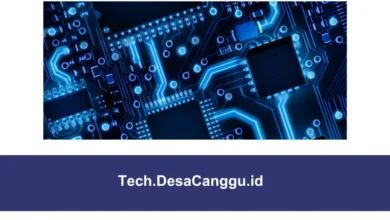Essential Technologies for Modern E-commerce App Development

In today’s digital age, e-commerce has revolutionized how we shop, offering convenience, variety, and accessibility. As more businesses transition online, the demand for robust, user-friendly e-commerce applications has surged. For those looking to embark on this journey, understanding the essential technologies behind modern e-commerce app development is crucial. Whether you are a budding entrepreneur or an established business, these technologies will help ensure your e-commerce application stands out in a competitive market.
1. Mobile-First Approach
With mobile commerce (m-commerce) growing rapidly, a mobile-first approach is paramount. Ensuring your e-commerce app is optimized for mobile devices can enhance user experience and increase conversion rates. Custom mobile app development in Dallas, for instance, focuses heavily on creating seamless, intuitive mobile applications that cater to the growing number of smartphone users. This approach involves responsive design, fast load times, and easy navigation, all tailored to smaller screens.
2. Progressive Web Apps (PWAs)
Progressive Web Apps (PWAs) offer the best of both web and mobile applications. They provide a native app-like experience within a web browser, without the need for downloads from app stores. PWAs are known for their speed, reliability, and ability to work offline, making them an attractive option for e-commerce businesses. They enhance user engagement through features like push notifications and home screen installation, driving more traffic and sales.
3. Headless Commerce
Headless commerce separates the front end (presentation layer) from the back end (commerce engine), allowing developers to build flexible and customizable user experiences. This decoupled architecture enables faster updates, seamless integrations, and enhanced scalability. An e-commerce application development company can leverage headless commerce to create bespoke solutions that cater to specific business needs and deliver unique shopping experiences.
4. Artificial Intelligence (AI) and Machine Learning (ML)
AI and ML are transforming e-commerce by providing personalized shopping experiences, optimizing inventory management, and enhancing customer service. AI-driven chatbots can handle customer inquiries 24/7, while ML algorithms analyze user behavior to recommend products, increasing cross-selling and upselling opportunities. Additionally, AI can streamline supply chain operations and predict trends, helping businesses stay ahead of the competition.
5. Augmented Reality (AR) and Virtual Reality (VR)
AR and VR technologies are redefining how customers interact with products online. AR allows users to visualize products in their real environment, such as trying on clothes or seeing how furniture fits in their home. VR, on the other hand, offers immersive shopping experiences, like virtual store tours. Implementing AR and VR can significantly reduce return rates and boost customer satisfaction by providing a more interactive and engaging shopping experience.
6. Blockchain Technology
Blockchain offers enhanced security and transparency in e-commerce transactions. It ensures secure payment processing, protects against fraud, and enables transparent supply chain tracking. Smart contracts, powered by blockchain, automate and enforce agreements, reducing the risk of disputes. A custom mobile app development Dallas Company can integrate blockchain to build trust with customers and provide a secure shopping environment.
7. Voice Commerce
Voice commerce is gaining traction with the increasing popularity of voice-activated devices like Amazon’s Alexa and Google Assistant. Search voice and voice-activated shopping make it easier for users to find and purchase products. Implementing voice commerce requires optimizing product descriptions and search functionality for voice queries. This technology caters to the growing number of consumers who prefer hands-free interactions, providing convenience and accessibility.
8. API Integrations
APIs (Application Programming Interfaces) facilitate seamless integrations with third-party services, enhancing the functionality of ecommerce applications. Payment gateways, shipping providers, CRM systems, and social media platforms can be integrated via APIs, streamlining operations and providing a cohesive user experience. Custom mobile app development in Dallas often includes API integrations to create comprehensive solutions tailored to specific business needs.
9. Cybersecurity Measures
With the rise of cyber threats, implementing robust cybersecurity measures is non-negotiable. Ensuring data encryption, secure payment gateways, and regular security audits are essential for protecting sensitive customer information. An e-commerce application development company can provide advanced security solutions to safeguard your e-commerce platform from breaches and build customer trust.
10. Cloud Computing
Cloud computing offers scalability, flexibility, and cost-efficiency for ecommerce applications. It allows businesses to handle increased traffic during peak times without significant infrastructure investments. Cloud services like Amazon Web Services (AWS) and Microsoft Azure provide reliable hosting, data storage, and disaster recovery solutions. Leveraging cloud computing ensures your e-commerce app remains fast, reliable, and available to users at all times.
11. Big Data and Analytics
Big data analytics helps ecommerce businesses understand customer behavior, preferences, and trends. By analyzing large volumes of data, businesses can make informed decisions, personalize marketing strategies, and optimize inventory management. Tools like Google Analytics and Adobe Analytics provide insights into user interactions, helping businesses refine their e-commerce strategies and improve overall performance.
12. IoT (Internet of Things)
The Internet of Things (IoT) connects physical devices to the Internet, enabling real-time data exchange and automation. In e-commerce, IoT can enhance inventory management, track shipments, and provide personalized customer experiences. For instance, smart shelves can monitor stock levels and automatically reorder products when they run low. IoT integration can streamline operations, reduce costs, and improve customer satisfaction.
Conclusion
Incorporating these essential technologies into your e-commerce application development strategy can significantly enhance your online business’s performance and customer experience. Whether you are partnering with a custom mobile app development company in Dallas or seeking an e-commerce application development company to build your platform, staying abreast of these technologies will ensure you remain competitive in the ever-evolving e-commerce landscape. By leveraging the power of mobile-first design, AI, AR/VR, blockchain, and other cutting-edge technologies, you can create a robust, secure, and engaging e-commerce application that meets the demands of modern consumers.



